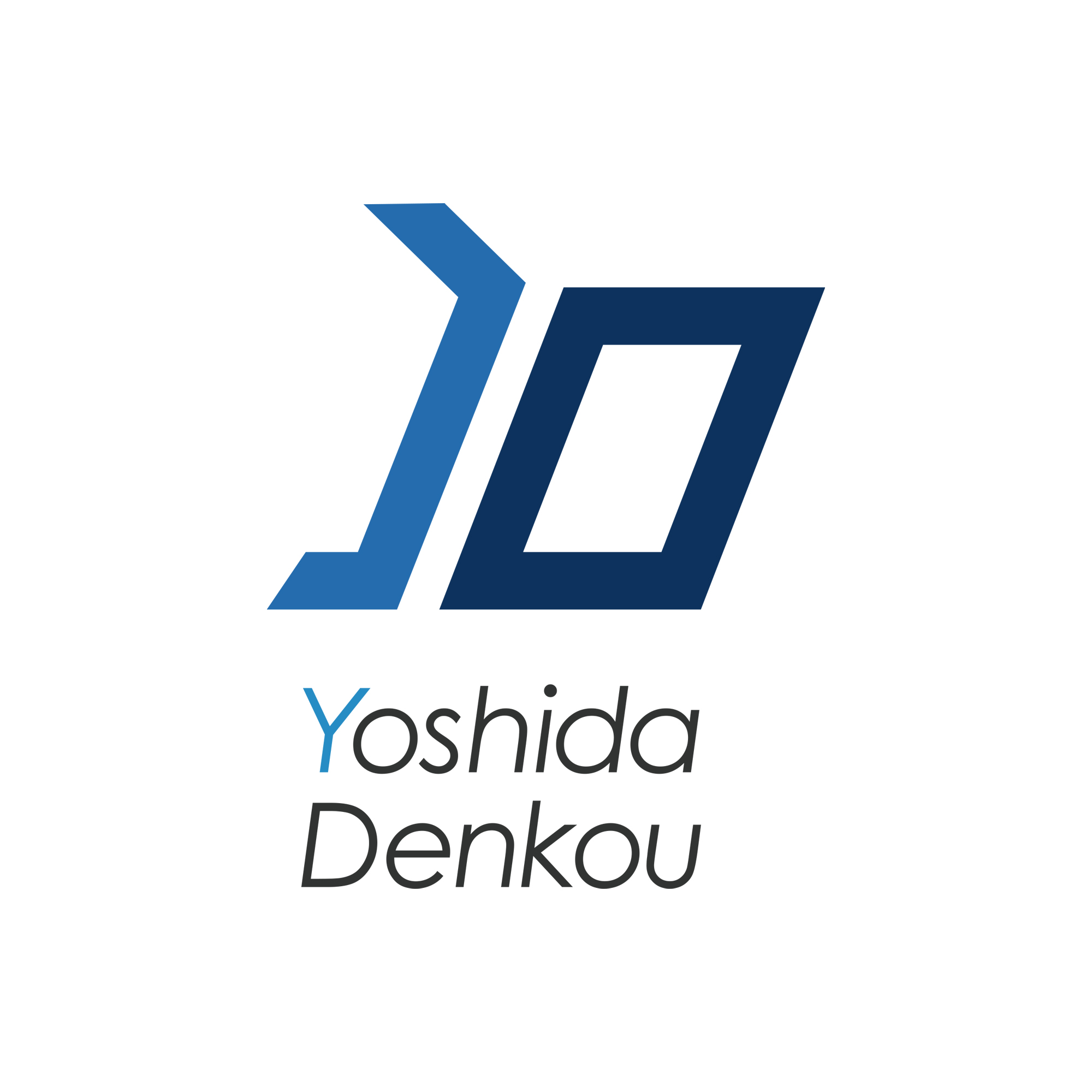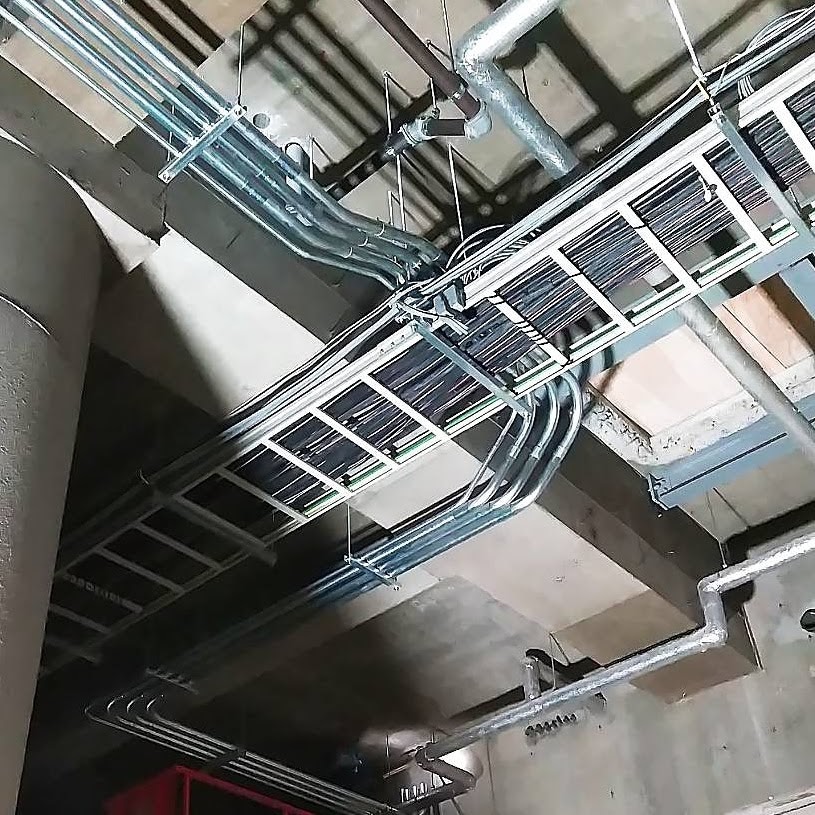
Using Smartsheet, Yoshida Denkou has successfully improved the efficiency of its process management and created a new organizational culture and business value
While advancing the visualization and sharing of data at construction sites, the company is also committed to fostering a sense of unity, including external staff, and is actively pursuing new business development and value creation through data utilization.
adoption rate
"Not only is Smartsheet easy to understand how to use at a glance, but it is also easy for anyone to get used to. The cost is low and it is highly scalable. I could clearly see why it is used by so many companies."
Management Office
Yoshida Denkou Inc. (hereafter, Yoshida Denkou) is a company that has built its business on the strength of its human resources and has used its high level of technical expertise to create a company that is flexible and diverse enough to respond to the changing times. The company has earned a strong reputation for its wide-ranging work, which includes general electrical construction, public works, solar power generation, and illumination, and has continued to grow steadily throughout the Kanto region.

The company introduced Smartsheet around September 2023. Yoshida Denkou's Mr. Fumiaki Maeyama, from the Management Office, explains their background,
“Our company has long faced challenges in finding effective methods for process management. Previously, we introduced a cloud-based tool commonly used in the construction industry, but the situation did not improve. The first issue was that the tool was not suitable for our operational requirements. The tool was originally designed for multiple organisations to share information about a single site while progressing through the process, which did not align with our goal of ‘managing all sites holistically and sharing information internally.”
The second issue was cost. The tool had relatively high licence fees and a pay-per-user pricing structure, forcing us to limit the number of users within the company. This also impacted the third issue, which was the ‘adoption rate of the tool.’ Our original goal was to improve operational efficiency by enabling all employees to share on-site information, but due to the limited number of users, we were unable to achieve this objective.
To improve this situation, Mr. Maeyama began to consider introducing a new solution. Mr. Maeyama, who comes from the IT industry, set out the following requirements: the solution had to solve the above problems, it had to have great potential, including scalability, and it had to be safe and able to guarantee governance.
“In a sense, what I focused on the most was visualizing and sharing information. We carry out construction work at many sites, but the scale and construction period vary greatly, and in some cases, the workmen carrying out the work change. In order to respond flexibly to these kinds of situations and provide safe, reliable, high-quality services on time, it was essential to make use of data.”
Ms. Akina Takahashi, Manager of the General Affairs Department points out that there were also issues with the previous operational system in accounting and other back-office operations.
“In the past, we didn't have an environment where we could see a list of the status of construction sites, so we would ask someone in the company verbally. Even with the invoicing work for customers, we would only process it after receiving a report from the craftsmen that the work was complete. Of course, Yoshida Denkou was able to respond to customers without causing any problems, but it would be smoother for related work and response work within the company, and for coordination, if we could grasp the status of the construction sites.

Streamlining process management through data visualization, as well as cost reduction and fostering a sense of unity.
Mr. Maeyama narrowed down the list of candidates by testing out various tools and ultimately decided to adopt Smartsheet. The deciding factor was the impression he got when he actually tested it out.
“The first thing I noticed was how easy Smartsheet was to use and how well it suited process management. The screen layout is similar to spreadsheet software, so I felt that it would be easy to introduce within the company and quickly become widely used. No matter how many features a tool has, if it isn't intuitive to use, it's meaningless. In that regard, Smartsheet is designed so that you can grasp the overall picture immediately after launching it, making it easy for anyone to get used to. In particular, I was honestly impressed by the ease of use of sheets and dashboards in project management. Additionally, while cost-effective, Smartsheet offers high scalability, including automation and integration with external databases. Even without staff with specialised IT skills, implementing Smartsheet enables companies to steadily advance digital transformation (DX) and efficiency improvements from the ground up. Through hands-on experience, I now understand why so many companies have adopted Smartsheet.”
The company introduced Smartsheet in 2023 and has been making various improvements centered around process management. Mr. Maeyama was already seeing significant results,
“The first thing that comes to mind is that use has become widespread. Now, 100% of our employees are using Smartsheet. In addition, the functionality of being able to easily upload photos to the process management table with accompanying notes, or although it involves using another app, there is also a feature that allows status notifications to be sent via LINE WORKS, enabling all employees to stay informed of the situation on site. It's a real breakthrough that we've been able to achieve company-wide data visualization while reducing costs. At the same time, I've also noticed a change in awareness. Before, even among the craftsmen, there was a mindset that as long as they got the work done at their own site, that was all that mattered. But now that the data is visualized, there's a new awareness that they need to keep an eye on other sites and craftsmen too, and make sure that all the construction work is completed successfully. I think that's also a real breakthrough."

The possibilities are endless. With a view to sales support, business development, and database construction
Ms. Takahashi says that through her work at the company, she feels the great benefits of the implementation every day.
“For example, in the past, a lot of our customer information, including construction information, was written by hand, so when we wanted to look up past data, it was sometimes difficult to find. Currently, information regarding construction work is being centralised, and this kind of data is useful not only for general affairs and accounting work, but also for making estimates more accurate, supporting the sales team, and deciding on management policies. I think the possibilities are endless, and it was truly shocking to see how much we could do just by implementing Smartsheet.”
The use of Smartsheet at Yoshida Denkou does not stop there. In the end, Mr. Maeyama also discussed new ideas for the future,
“Our company also produces inquiry forms related to various types of construction. In the installation of the illumination we were in charge of last year, we incorporated Smartsheet into the inquiry form, and we were also able to achieve great results in terms of data visualization, management, and analysis efficiency. Personally, I'm also thinking about using Smartsheet to build a core database within the company. The information that is accumulated daily is an invaluable asset to the company and forms the basis for developing new customers and businesses. I hope that we can continue to provide high-quality services that make the most of Yoshida Denkou's particular strengths while fully using Smartsheet in the future.”







